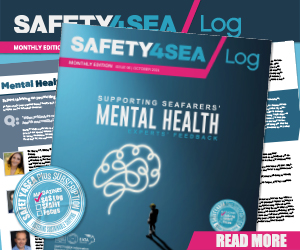After the oil spill that was reported at the Port of Rotterdam, the port authority along with emergency services installed oil booms around the vessel as quickly as possible to prevent the further spread of the oil. The installation was successful but some of the oil had already spread beyond the incident area. The Port of Rotterdam held the owner of the tanker liable.
While going to its assigned berth for loading, the ‘Bow Jubail’ made contact with the jetty and accidentally ruptured the hull, on June 23. As result, about 217 tons of heavy fuel oil (HFO) were released from the fuel tank.
[smlsubform prepend=”GET THE SAFETY4SEA IN YOUR INBOX!” showname=false emailtxt=”” emailholder=”Enter your email address” showsubmit=true submittxt=”Submit” jsthanks=false thankyou=”Thank you for subscribing to our mailing list”]
Experts are expecting the clean-up operation to last weeks, after they carried out an inspection on the water. The findings from the inspection will be used to come up with an action plan for the oil-cleaning operation.
In the meantime the Safety Region Rotterdam Rijnmond (VRR) has set two priorities:
- The oil-cleaning operation
- A focus on the care of oil-soaked birds.
The Harbour Master’s division of the Port Authority will coordinate the pollution clean-up operation in the ports and the impacts on shipping. RWS will coordinate the clean-up operations on the waterways, and the collaboration between animal rescue and bird protection.
The Port of Rotterdam said:
The priority of the clean-up operation is now to clean the surface water in the Derde Petroleumhaven. Only then can vessels be cleaned in a special washing facility so that they are clean and safe to re-join shipping traffic.
The Derde Petroleumhaven, Wiltonhaven and the marinas of Vlaardingen and Schiedam will remain closed until further notice. Furthermore, local authorities advised people not to contact the oil.


































































